Universities in Belgium
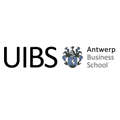
Antwerp International Business School
Antwerp, Belgium
The Antwerp International Business School is an independent private institution, affiliated with the International University of Belgium. Campus locations are Antwerp, Brussels and Ghent. Courses are offered at the undergraduate, graduate, and postgraduate level, while the study programs are constantly kept up to date with the Global Council for Management Education. Furthermore, the school aims to develop long-term relationships with other institutions around the world, and this is supported by the International Student Mobility Initiative. The career-oriented programs that the school... See full description.
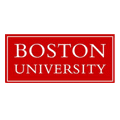
Boston University's Graduate Program in Brussels
Brussels, Belgium
Boston University Brussels is part of Boston University's Metropolitan College (MET), which is made up of seventeen degree granting colleges. The Brussels campus was established in 1972, and with this step Boston University became the first major American university to offer graduate business management degrees in Europe. The school there greatly focuses on international business, and the student body consists of a great variety of nationalities and cultures. Participants have usually gained a number of years of work experience. Classes are held throughout the day or during weekday... See full description.
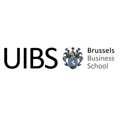
Brussels Business School
Brussels, Belgium
Brussels Business School is a private, independent international business school, focused on delivering flexible business and management programs. The educational opportunities offered are at the undergraduate, graduate, and postgraduate levels. These are offered in a uniquely diverse, multicultural, but English-speaking environment. Some of the options available at the school include Business and Entrepreneurship, Finance and Economics, Marketing and Management, Master of Arts in Human Resource Management, Master of Science in Operations Management, as well as a number of Business... See full description.
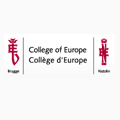
College of Europe
Bruges, Belgium
The College of Europe was established in 1993 as a private institute that provides high quality education and world renowned post-graduate European study programs. CE offers a true European environment in its Bruges and Natolin (Warsaw) campuses. CE makes certain that for 10 months students are presented with an intense and challenging educational atmosphere so that it may prepare them for the real world. GCLC (Global Competition Law Centre) is a research facility of CE. It came into being in 2004 and it upholds legal and economic discourses of competition policy reforms in the EU and the... See full description.

Faculté Polytechnique de Université de Mons
Mons, Belgium
The University of Mons is founded by the association of the University of Mons-Hainaut and the Faculty of Engineering of Mons, Mons, Belgium. They provide educational service for everyone irrespective of their nationalities. Other services provided include housing, restaurant, libraries, social services etc. It is an educational institute with the following faculties: Architecture and Urban Planning, Engineering, Medicine & Pharmacy, Science, Translation and Interpretation, Human and social Sciences, Language Sciences etc. These have made available Bachelor’s, Master’s and Doctoral... See full description.
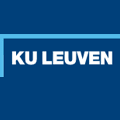
Faculty of Theology of the Catholic University of Louvain
Leuven, Belgium
The Catholic University of Louvain is located in Louvain, Nederlands. Founded in the year 1425 by Pope Martin V, it is the oldest catholic university in existence. The faculty of theology of this historic university, established in the year 1834, contains five sections: Biblical Studies, History of Church and Theology, Theological Ethics, Systematic Theology and Pastoral Theology. Their aim is to teach Religious and theological studies here. The notes and materials used are self-researched by the tutors. The University’s Housing services provide a variety of accommodation options.... See full description.
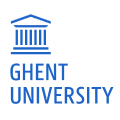
Ghent University
Ghent, Belgium
Ghent Universityis a leading university in Belgium, founded in 1817 now with a total of 11 faculties, 5 doctoral schools and a student population of over 32,000 (with more than 2000 foreign students). These values clearly prove their experience in providing educational services to the world. The school is composed of the following faculties: Medicine and Health Sciences, Law, Art and Philosophy, Pharmaceutical Sciences, Political and Social Sciences and others. Something interesting about this university however is that all undergraduate courses are taught in German Language with only a... See full description.
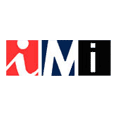
International Management Institute
Brussels, Belgium
IMI is a well-established center of higher learning, focused on the fields of business and management. It offers master’s and undergraduate level programs that equip students with the necessary skills to enter the corporate working environment. IMI’s two campuses are located in Brussels and Antwerp in Belgium. The institution also offers and MBA and a BSC, validated by the university of Buckingham, which means that students, who have completed their degrees successfully will receive their certificates and transcripts from the UK. Moreover, IMI makes available an International... See full description.
Universities in Belgium by City:
AntwerpBrugesBrusselsElseneGhentLeuvenLiègeLouvain-la-NeuveMonsAbout universities in Belgium
The higher education system in Belgium is considered one of the finest in the world, and while its institutions are very similar in structure to other European schools due to the recently implemented changes that came out of the Bologna process, there are some distinctions that bear mentioning. Below we will describe this system in a bit more detail, including some of the admission requirements, cost and current degree format at the country’s colleges and universities.
Higher Education in Belgium Explained
Belgium is a unique country in that it has three official national languages, Dutch, French and German, and specific areas in the country where each language is predominantly spoken. The Dutch, or Flemish area of the country is to the north, and the Walloon or French-speaking community is in the southern region. German speakers, who account for less than 1 percent of the population, are concentrated in a small German community in the west-central portion of Belgium.
The reason this distinction is important is the colleges and universities in Belgium are organized by the two largest communities: Flemish, where the instruction and course materials are all presented in Dutch; and Walloon, where French is the accepted norm. German students in Belgium usually attend school in the French communities.
Admission
Anyone possessing a regular academic diploma in Belgium is eligible to enroll at one of the many institutions of higher learning (those of their language), but there are a few stipulations. In certain courses of study, students are required to take and pass an entrance exam prior to being admitted. These entrance exams, which are developed and administered by the state, vary in difficulty depending on the degree program. The programs for which students must initially qualify include medicine and dentistry, the arts, engineering sciences and management sciences.
Cost
The national government sets and regulates the cost of higher education at every public college and university. Depending on the student’s (and his or her family’s) ability to pay, there are three categories of fees:
Structure
Since the adoption of the Bologna process in the late 1990s, the Belgium system of higher education has been following the Bachelor/Master model, a system long used in the United States. Here there are three potential cycles to a student’s education.
First Cycle: At the first cycle level of education in Belgium students have two options from which to choose: the professional bachelor and academic bachelor. The professional bachelor is a 4-6 year program, after which students earn a first-cycle degree in a particular subject or career field. The academic bachelor, on the other hand, has no finality, no degree. This program merely prepares students and gives them access to the Master’s Degree program in the following cycle.
Second Cycle: The second cycle Master’s Degree program takes between 1 and 2 years to complete and is offered in many different academic fields of study at both colleges and universities.
Third Cycle: Those who earn a Master of Arts or Master of Science degree and wish to continue their studies can apply for admittance into a doctorate program—a rigorous academic and research-oriented program, offered only at universities, and leading to a PhD degree.
Higher Education in Belgium Explained
Belgium is a unique country in that it has three official national languages, Dutch, French and German, and specific areas in the country where each language is predominantly spoken. The Dutch, or Flemish area of the country is to the north, and the Walloon or French-speaking community is in the southern region. German speakers, who account for less than 1 percent of the population, are concentrated in a small German community in the west-central portion of Belgium.
The reason this distinction is important is the colleges and universities in Belgium are organized by the two largest communities: Flemish, where the instruction and course materials are all presented in Dutch; and Walloon, where French is the accepted norm. German students in Belgium usually attend school in the French communities.
Admission
Anyone possessing a regular academic diploma in Belgium is eligible to enroll at one of the many institutions of higher learning (those of their language), but there are a few stipulations. In certain courses of study, students are required to take and pass an entrance exam prior to being admitted. These entrance exams, which are developed and administered by the state, vary in difficulty depending on the degree program. The programs for which students must initially qualify include medicine and dentistry, the arts, engineering sciences and management sciences.
Cost
The national government sets and regulates the cost of higher education at every public college and university. Depending on the student’s (and his or her family’s) ability to pay, there are three categories of fees:
- Bursary student. Bursary students are those eligible for full financial assistance, with a tuition rate of €80 and €100.
- Almost-bursary student. Students with an annual family income of less than €1286 qualify in this category, with a tuition rate of €334 to €379.
- Non-bursary student. Students in this category are not eligible for any type of financial aid and pay a tuition fee between €501 and €568.
Structure
Since the adoption of the Bologna process in the late 1990s, the Belgium system of higher education has been following the Bachelor/Master model, a system long used in the United States. Here there are three potential cycles to a student’s education.
First Cycle: At the first cycle level of education in Belgium students have two options from which to choose: the professional bachelor and academic bachelor. The professional bachelor is a 4-6 year program, after which students earn a first-cycle degree in a particular subject or career field. The academic bachelor, on the other hand, has no finality, no degree. This program merely prepares students and gives them access to the Master’s Degree program in the following cycle.
Second Cycle: The second cycle Master’s Degree program takes between 1 and 2 years to complete and is offered in many different academic fields of study at both colleges and universities.
Third Cycle: Those who earn a Master of Arts or Master of Science degree and wish to continue their studies can apply for admittance into a doctorate program—a rigorous academic and research-oriented program, offered only at universities, and leading to a PhD degree.

